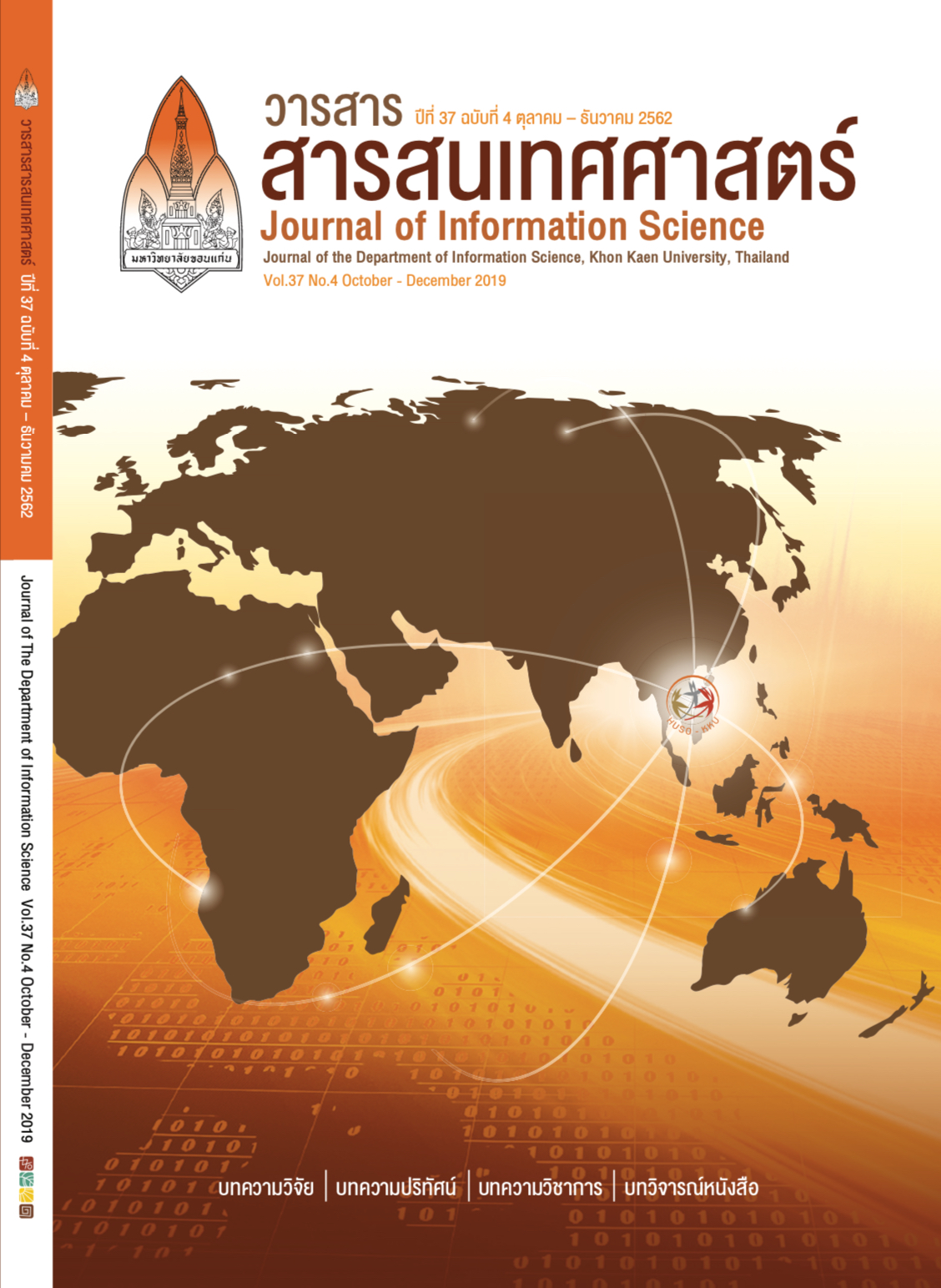Ontology Development for Thai Herbal Medicine Recorded in Ancient Documents
Keywords:
Ontology, Herbal Medicine, Ancient DocumentAbstract
The purpose of this research was to develop an ontology for searching Thai herbal medicine recorded in ancient documents. The structure of ontology was designed based on studying the information behavior and needs of 10 researchers and folk doctors, analyzing the structure of content of Thai herbal medicine and Thai traditional medicine recorded in ancient documents. The data were collected from the published transliterate versions of traditional palm leaf manuscripts. The result of these studied were used to organizing the knowledge, design classes and relations between classes. The ontology by using Protégé. The evaluation of the ontology structure done by experts, using the evaluation form. Then the retrieval performance was evaluated. The results revealed that the developed ontology has 12 main classes includes Herb, Test, Preparation, Pharmacy, Method, Effect, Caution, Spell, Symptom, Human and Bailan and 23 relations. the appropriateness of the structure of a developed ontology was rated at the “good level” with Average = 4.13 and S.D = 0.40. The results of retrieval performance evaluation were average of precision = 0.98, average recall = 0.98, and average F-measure = 0.98








